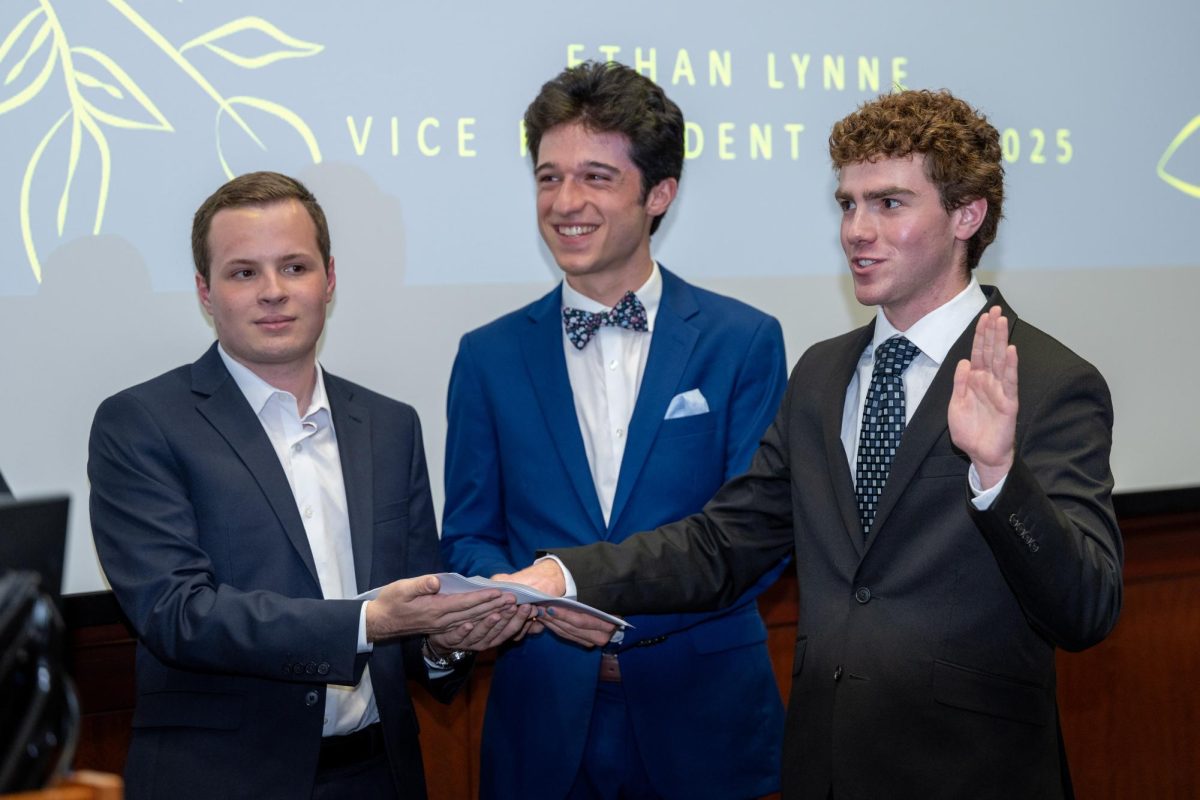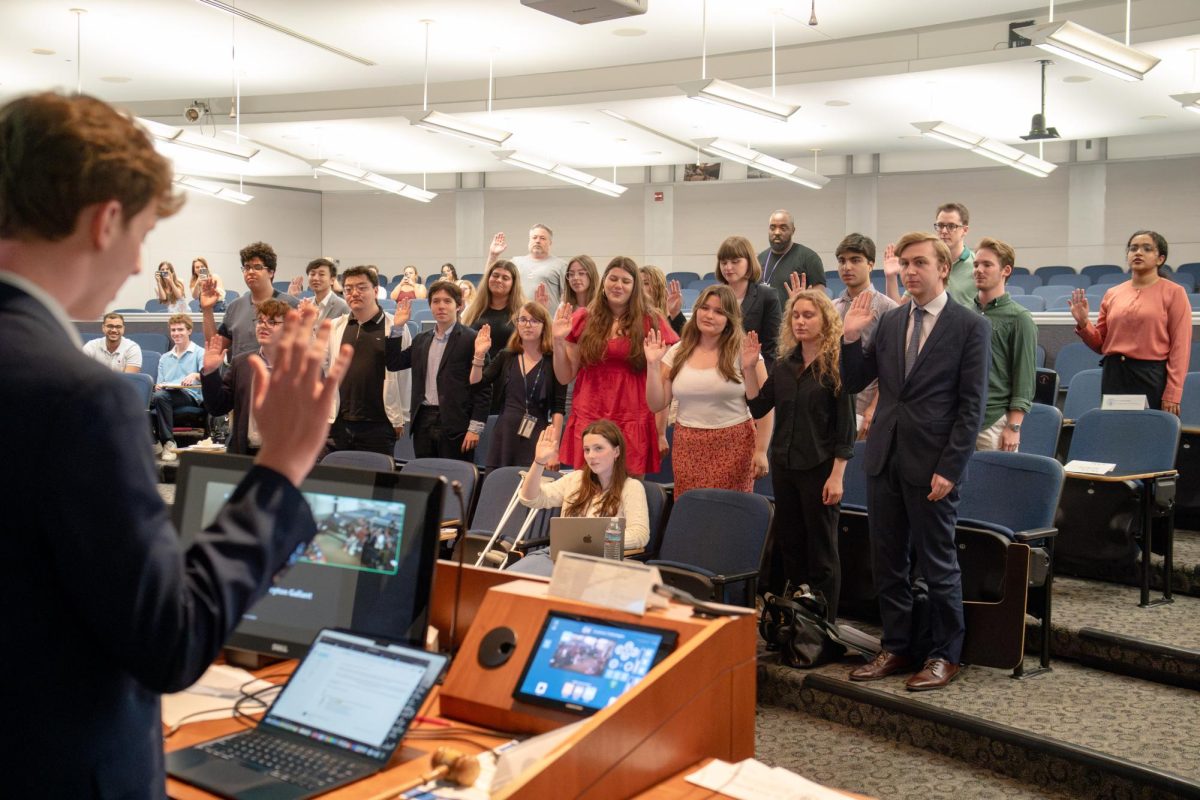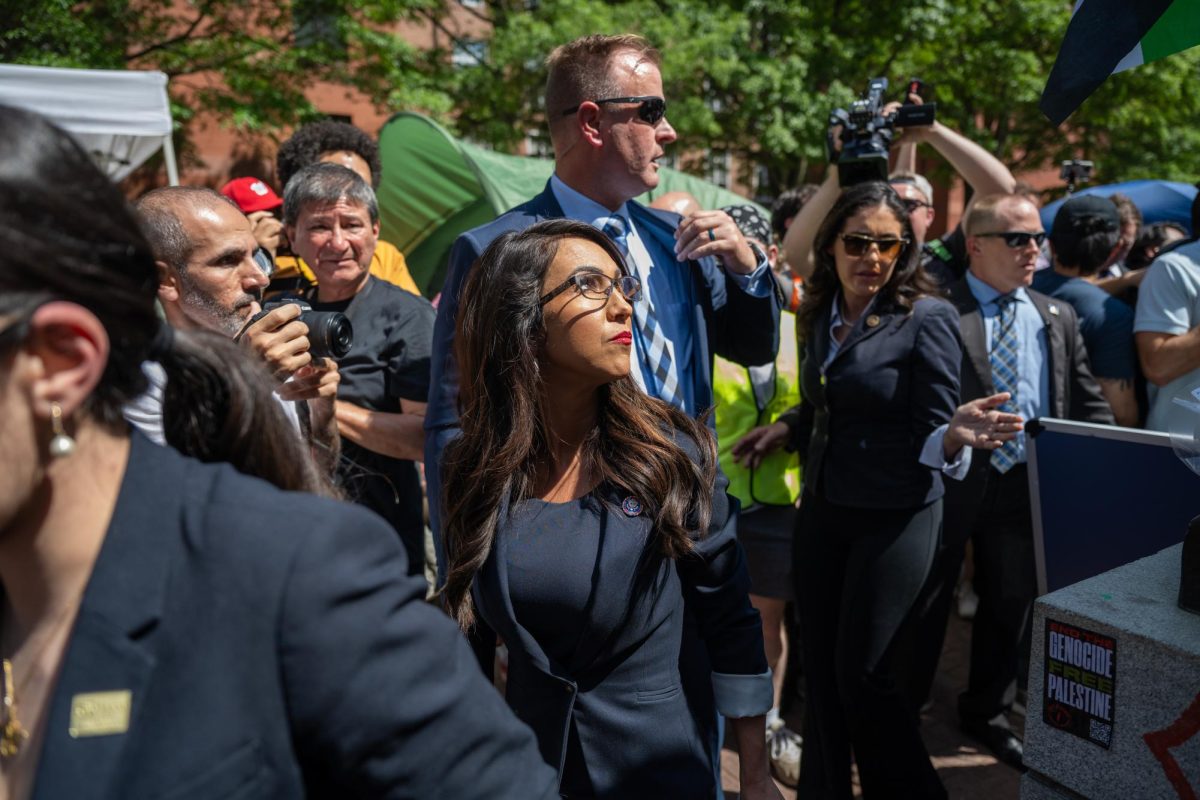When District residents go to the polls Tuesday to pick their presidential candidate, it is likely their votes will have more impact than they have ever had in history.
The District will join Maryland and Virginia Tuesday in what is typically called “the Potomac Primary.” This new junction of the three states’ primaries comes after years of failed attempts to bring prestige to the District’s vote.
Political leaders are looking for this year’s vote to trump the miniscule impact District voters had in 2004’s presidential primaries. Organizers scheduled the city’s primary before the Iowa caucus – a violation of party rules that led many candidates to remove their names from the ballot.
This year’s Potomac Primary could be the first D.C. primary in recent years to truly represent the District residents’ preferences. Roughly 13 percent of D.C.’s 340,000 registered voters cast a ballot in one of the 142 polling locations in the 2004 primary. Many are hoping for higher turnout this year.
“This primary is important because it’s been so contested and we’re so far into (the election),” said Ethan Pollack, a second-year graduate student. “The opportunity for candidates to win is decreasing with each primary. Whoever wins this could go on to potentially win the whole thing.”
Pollack organized one of the many campaign events that took place around the city this past weekend. On Friday night, about 60 volunteers, led by Pollack, gathered in Dupont Circle to support Sen. Barack Obama (D-Ill.).
“You know we’re out here on a Friday night when we could be at happy hour because we want to show people we’re enthused by this election,” Pollack said. “Regardless of who they vote for I hope that (residents) will come out to vote.”
D.C. has an estimated 260,000 registered Democrats – about 75 percent of the city’s registered voters. Analysts suggest that D.C.’s numerous Democrats will turn to Obama over Sen. Hillary Clinton (D-N.Y.) for the Democratic ticket.
“I think the results will be overwhelmingly for Obama,” said Forrest Maltzman, a political science professor. “Senator Obama appeals to the two different demographic groups which largely make up D.C. voters – African-American voters, and highly educated white voters.”
Out of the about 600,000 District residents, blacks outnumber whites three to two, according to the National Census Bureau
The District has only voted in 11 of the 56 U.S. presidential elections. The first time was in 1964, three years after the city received the right to vote, but D.C. is still without voting representation in Congress. The District currently has one non-voting member in the House of Representatives.
“We have Republican supporters in both the House and the Senate,” said Kevin Kiger, communications director for D.C. Vote, a non-profit group supporting District voting rights. “Several candidates of the 2008 presidential race have made mention of (D.C. voting rights). Huckabee on the Republican side, and both Clinton and Obama for the Democrats.”
Regardless of who wins the 2008 presidential primary, experts suggest that Tuesday’s events are perhaps more important for D.C. itself than they are for either political party.
“The 2008 D.C. Primary is history in the making,” said Dwight Cropp, professor of political science at GW and former D.C. politician. “This is the first time that the D.C. primary will have national publicity and attention. And of course this can only serve to strengthen the push for Congressional representation.”
In the past year, the fight to garner voting representation for the District has been more successful than ever before. Though the House passed the District of Columbia Voting Rights Act of 2007, the Senate defeated the legislation last September by a vote of 57 to 42. If passed, the bill would increase membership in the House from 435 to 437 members, granting one representative to the D.C. and one additional representative to Utah.
“A big part of the reason why Mayor Fenty and other residents support Senator Obama is because he is a champion of D.C. voting rights,” senior Jon Kraft said. “Momentum-wise these next three primaries are crucial.”
In 2004, D.C.’s three electoral votes went to Massachusetts Democratic Sen. John Kerry, who garnered 89 percent of the vote. Only 9 percent of the Republican voters in the city supported President George W. Bush during that election.







